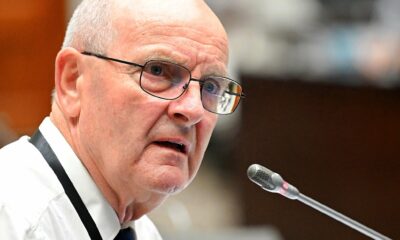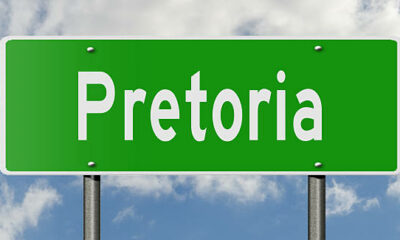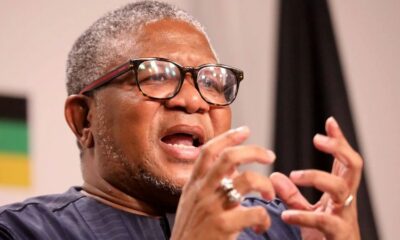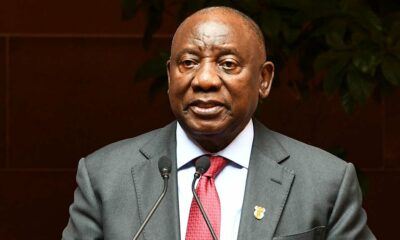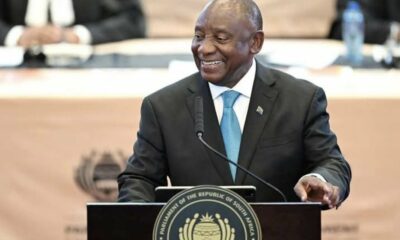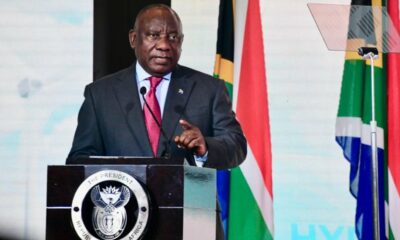News
Mbeki, Zuma, Ramaphosa: How Three Presidents Oversaw the ANC’s Decline
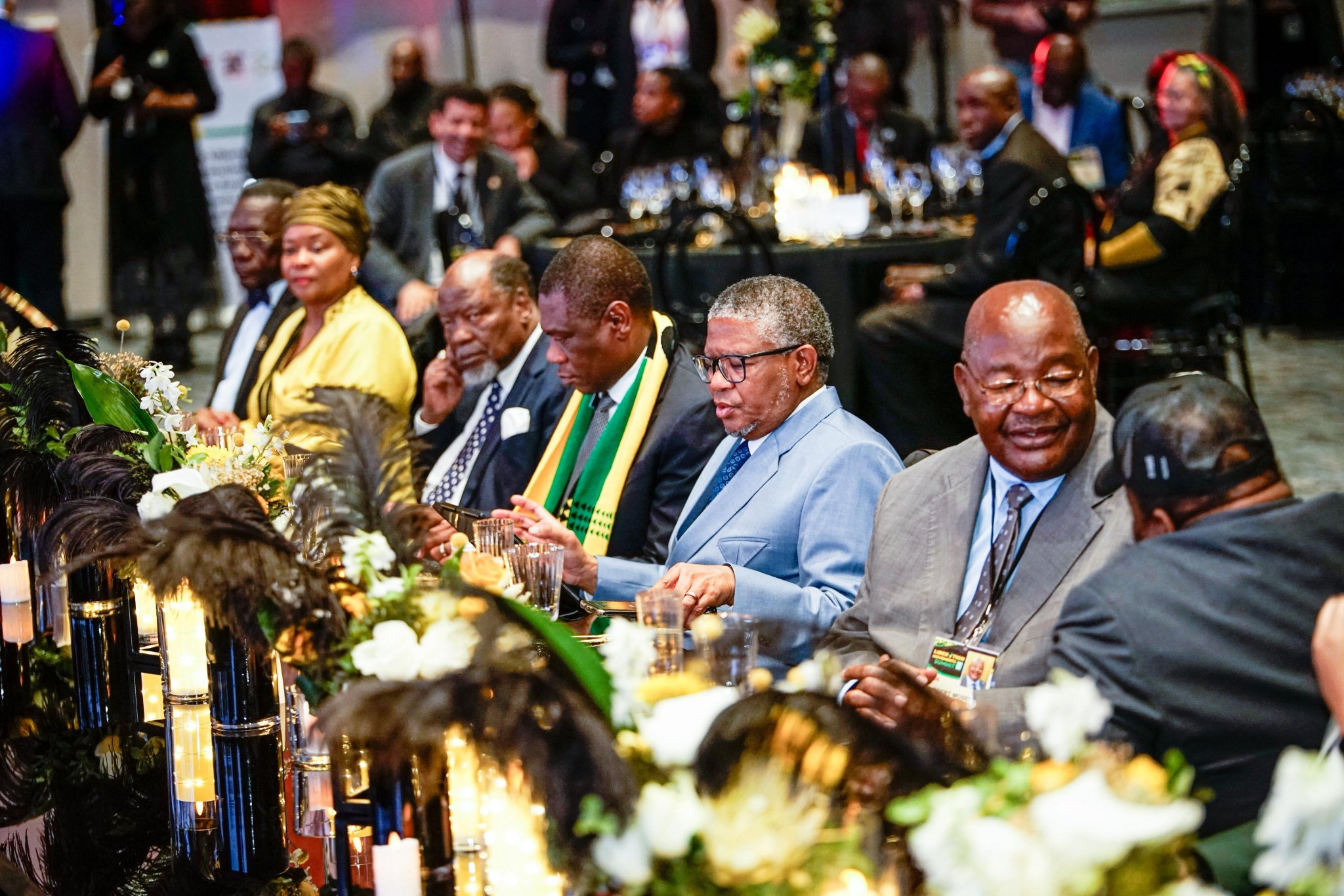
For decades, the African National Congress (ANC) was more than just South Africa’s ruling party, it was the embodiment of liberation, loyalty, and national pride. But 30 years into democracy, the party’s once unshakable dominance has splintered. From Thabo Mbeki’s two-thirds majority, to Jacob Zuma’s scandals, to Cyril Ramaphosa’s bruising 2024 election loss, the ANC has moved from unifier to factional battleground.
What happened to the party that once seemed untouchable?
Mbeki: The Era of Highs and Blind Spots
When Thabo Mbeki took over from Nelson Mandela in 1999, the ANC was riding high. The party secured 66.4% of the vote, and five years later, its support swelled to nearly 70%, the strongest mandate since 1994. With more than two-thirds of parliament in hand, Mbeki’s ANC could even change the constitution at will.
Local elections under his leadership also reinforced the party’s dominance, with metros like Johannesburg and Tshwane firmly under ANC control. To many, this was the high-water mark of post-apartheid politics.
But Mbeki’s time was not without controversy. His refusal to provide antiretrovirals during South Africa’s HIV/AIDS crisis left a painful legacy. Analysts like Zakhele Ndlovu argue that while Mbeki is often remembered as a “better leader” compared to his successors, his government laid the groundwork for service delivery failures and the patronage networks that later expanded under Zuma.
Zuma: Majorities Without Moral Authority
Jacob Zuma’s presidency (2008–2018) was a turning point. His rise deepened internal ANC rifts and coincided with the explosive growth of corruption allegations and factional battles.
In national elections, the party still pulled strong numbers over 60% in 2009 and 62% in 2014but the cracks were widening. By the 2016 local elections, urban voters were drifting. The ANC lost outright control of metros like Tshwane, Nelson Mandela Bay, and Johannesburg, forcing reliance on fragile coalitions.
The international press watched closely. The BBC described the Tshwane results as a “seismic” shift, a warning that the ANC’s grip on urban South Africa was loosening.
Meanwhile, splinter groups like COPE and the EFF emerged, capitalising on disillusionment within ANC ranks. As one analyst put it: “The opposition didn’t grow because they suddenly got stronger, the ANC weakened, and people were ready to listen.”
Ramaphosa: Renewal Promises, Historic Lows
When Cyril Ramaphosa succeeded Zuma in 2018, many South Africans expected a clean-up act, “New Dawn” became the hopeful slogan. But expectations collided with economic stagnation, loadshedding, corruption scandals, and deep factional divides.
The 2019 national election delivered a sobering reality: the ANC dipped below 60% for the first time since 1994, shedding 19 parliamentary seats.
By 2024, the slide became historic. The party secured just 40.2% of the national vote, its lowest yet, forcing coalition negotiations at the national level. The once-dominant party of Mandela could no longer govern alone.
Turnout also slumped, with just 58.6% of eligible voters participatinga sign not only of ANC weakness, but of growing public disillusionment with politics altogether.
Analysts Weigh In: Three Presidents, One Decline
Political experts argue the rot didn’t begin with Ramaphosa or Zuma alone, it was cumulative.
-
Zakhele Ndlovu (UKZN) calls all three presidents “disastrous in different ways,” blaming Mbeki for the HIV crisis, Zuma for entrenching corruption, and Ramaphosa for failing to stop the decline.
-
Joe Mhlanga (Independent analyst) points to broken promises on jobs and land, and says voters, mostly black South Africans, were left with “corruption, nepotism, and disregard for the law” instead of transformation.
On social media, frustration has boiled over. Young voters, especially, express disbelief that the ANC, once the architect of democracy, now struggles to clear even 50% of the vote. Memes about “coalition chaos” and “New Dawn blues” reflect a generational skepticism about the party’s future.
The End of ANC Exceptionalism
The ANC’s decline is more than a numbers story; it marks a psychological shift in South African politics. For the first time, voters no longer see one party as inevitable. Coalition politics, once unthinkable at national level are now a reality.
Whether the ANC can reinvent itself, or whether opposition parties finally break through, remains the central question. But one thing is certain: the days of two-thirds majorities are gone, and with them, the aura of ANC invincibility.
{Source: IOL}
Follow Joburg ETC on Facebook, Twitter , TikTok and Instagram
For more News in Johannesburg, visit joburgetc.com

